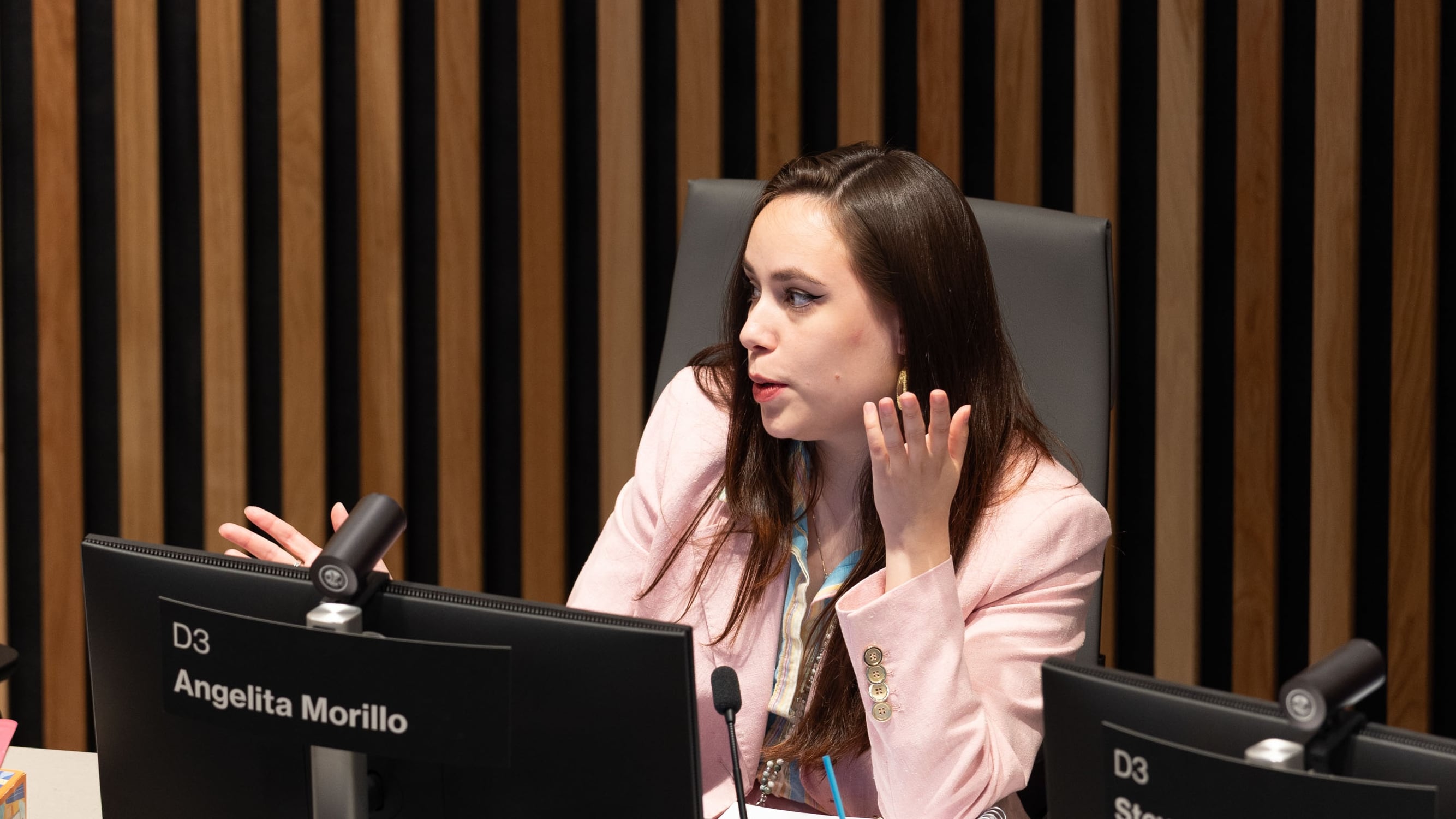A week after a marathon budget session, the Portland City Council spent Wednesday morning trying to whittle down the number of budget amendments it must discuss to pass the city’s final budget on June 11.
The 12 hours council spent last week touched on just 40 or so of the 126 amendments proposed by various councilors to Mayor Keith Wilson’s budget.
The council must, by law, pass the final city budget of $8.5 billion by the end of June 11. That means that after last week’s meeting, the council was left with more than 80 amendments to work through on June 11.
Trying to navigate that time crunch, the council held a meeting on the morning of May 28 to discuss some of the amendments—called budget notes—that don’t affect the budget total to cut down on the time spent on them June 11. No votes were taken: The session just allowed councilors to ask one another questions about various amendments presented.
But two budget notes—presented by Councilor Angelita Morillo—took up an hour of the three-hour meeting.
As has become a pattern, the twin budget notes struck on a point of deep division on the council: the police budget.
One of Morillo’s amendments directs the Portland Police Bureau to use $1 million from its Special Revenue Fund—which mostly comes from asset forfeitures, or collections through both state and federal seizures of money and other assets during arrests and raids—to hire a consultant tasked with researching the “efficacy and effectiveness of law enforcement strategies, programs, practices, or specialized units operating within the jurisdiction.”
Morillo’s second amendment directs the Police Bureau to explore developing an asset forfeiture fee that could be a flat fee, a tiered fee, or a percentage of the value of each asset seized. That fee—taken out of the total asset value—would flow into the general fund rather than remaining with the Police Bureau.
Morillo argued that allowing police to keep the proceeds of asset forfeitures creates a perverse incentive.
“Asset forfeiture, the seizure of money, property, or other assets by law enforcement in connection with alleged criminal activity, raises significant concerns related to due process, racial equity, and the incentives created when forfeiture revenues flow directly to policing operations,” Morillo wrote in her amendment.
The two notes set off an hourlong debate about the Police Bureau’s budget—and how closely the City Council should direct the bureau’s spending.
The bureau’s Special Revenue Fund at the end of fiscal year 2023-24 held $8.4 million. The bulk of that money comes from the state and the feds. (About $2.5 million comes from other sources.) Though the feds and the state place limitations on what the bureau can use that money for, it does have a fair amount of discretion to use that money to plug certain one-time unexpected expenditures or shortages. Police Chief Bob Day says in recent years the bureau has used the fund for things like unanticipated overtime costs, training, stun guns, equipment purchases, vehicle repairs and other “tangible items of immediacy.” (The federal guidelines do not allow the bureau to use the funds to supplant existing funding.)
Day told the council that the bureau relies on the fund in part to “offset costs” within the bureau because, he said, it has not been “adequately funded.” Day says that since 2022, the bureau has “requested or spent about $4 million” from the fund.
Councilor Dan Ryan asked if a previous council had ever attempted to direct the bureau’s use of the fund. The Police Bureau said no council in recent memory had directed the bureau how to spend money in the fund.
Ryan said he felt it played into a pattern of this council ”raiding funds with specific funds to do one-time fixes to our budget.”
Morillo retorted that her budget amendment directed the bureau to use $1 million from the fund for a use that fits neatly within state and federal guard rails around fund uses.
“My budget goes to exactly what it’s supposed to be here for,” Morillo said. “It can certainly be used to buy police toys and robot dogs and pepper spray. But the DOJ specifically said that studies are a top priority to ensure that policing is more ethical over time. It’s not going against the purpose of these funds.”
Councilor Eric Zimmerman, a staunch defender of the Police Bureau, said he was concerned that the direction to establish an asset forfeiture fee would disincentivize cops from seizing assets during raids.
“Telling folks who are involved in criminal activity that they have one less very expensive thing is an important incentive for not conducting criminal activity,” Zimmerman said. “This budget note alarmingly goes in a different direction because it talks about not incentivizing this.”
Morillo responded that it’s been “well established that asset forfeiture has been exploited” by law enforcement.
Chief Day conceded that the bureau had allowed the Special Revenue Fund to grow in recent years—but said it was partly because the bureau has been operating in a “scarcity” mindset due to not being “adequately funded.”
“We have begun since January a real approach to try and spend this down,” Day said, “and we do have a significant list of unfunded needs that we can attribute this money to, assuming it meets this category.”
The Police Bureau did not immediately respond to a request from WW for that list of unfunded needs.

